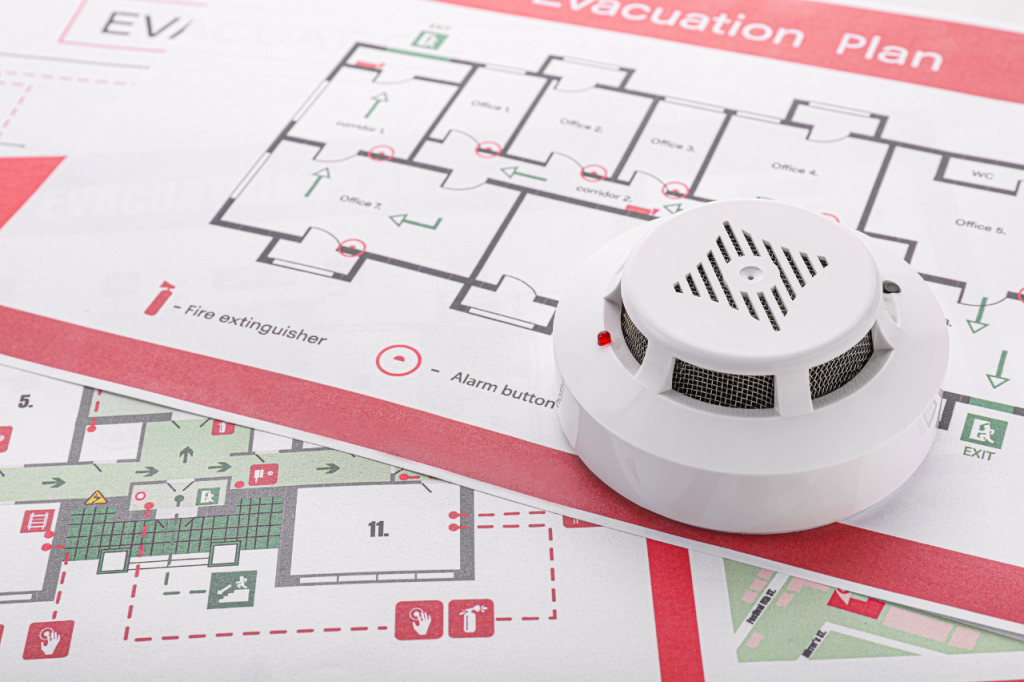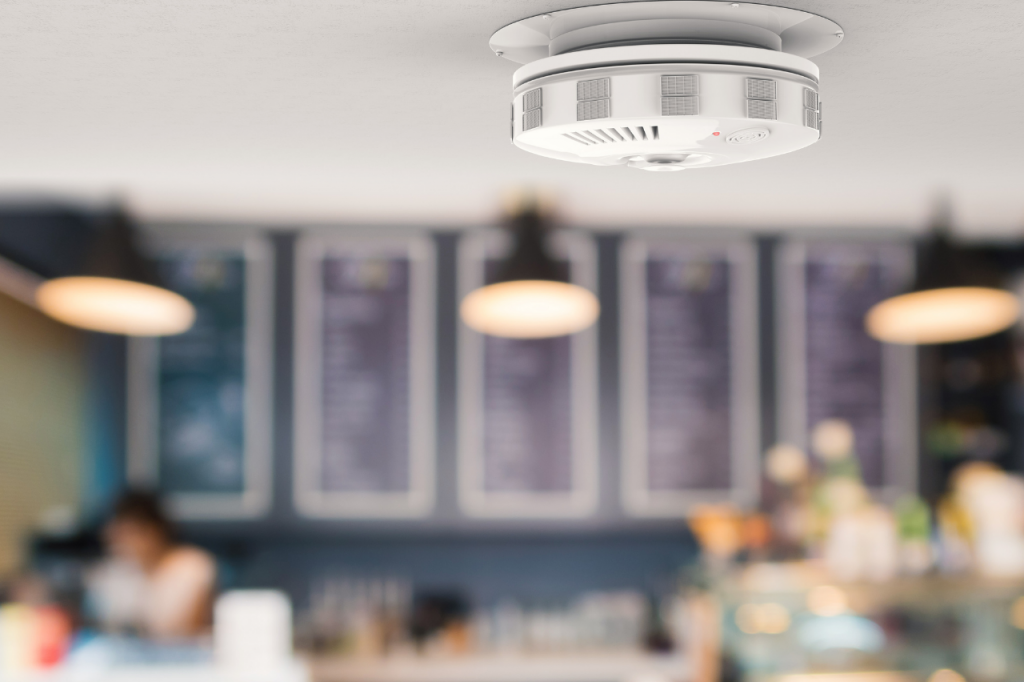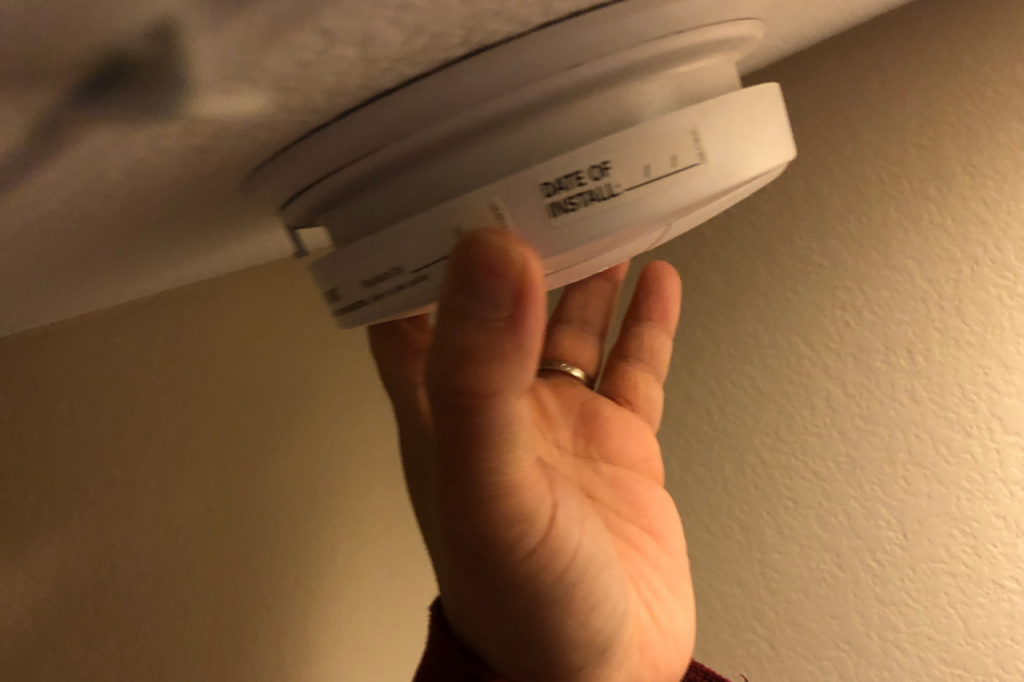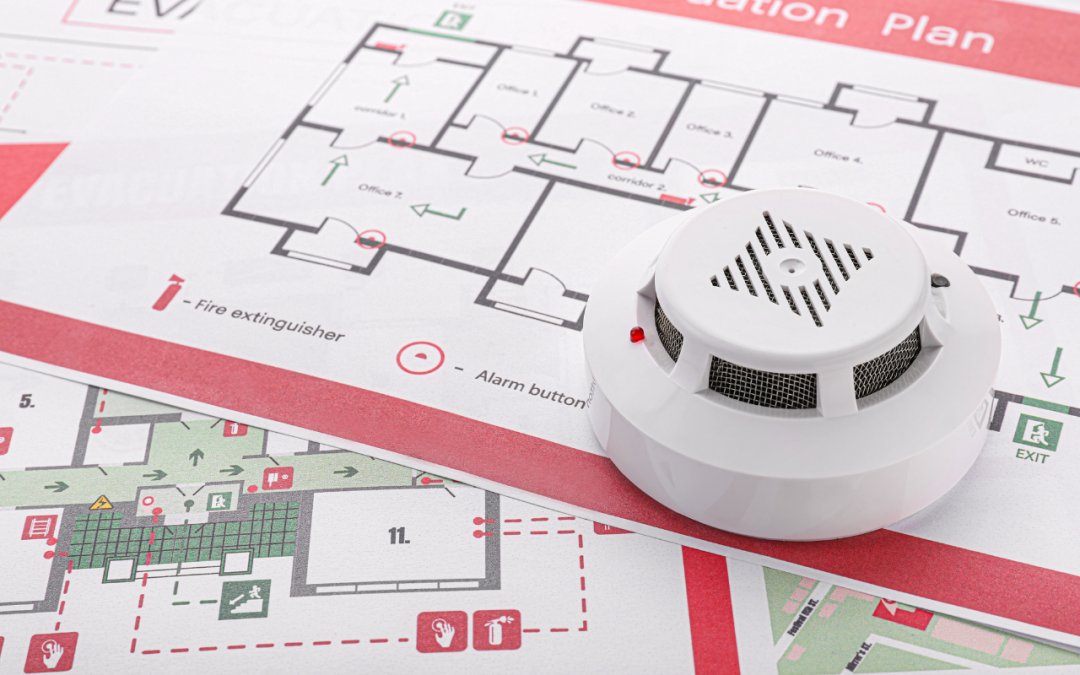Smoke alarms are life-saving devices. Smoke alarms work by sensors that detect smoke or fire in homes or commercial spaces. With the new smoke alarm legislation and requirements in QLD, homeowners have the choice to choose between hardwired or wireless smoke alarms, as long as they are interconnected. Now, the debate is on: what type of smoke alarm should you install in your home? While both types of smoke alarms provide the security and protection you’re looking for, they both have pros and cons to be considered. In this article, we will compare hardwired vs wireless smoke alarms for residential properties in QLD.

Your smoke alarms need to be interconnected
Hardwired smoke alarms are wired into the home’s electrical system, which means that this type of smoke alarm is dependent on a power supply because they are connected to the power circuit. There are hardwired models that could operate continuously even without electricity because they are backed up with a battery outlet which ensures your alarm will always have a reliable power source. As long as their lithium batteries are working, you don’t have to worry if your electricity goes out.
Wireless smoke alarms are solely operated by batteries, lithium batteries that last 10 years to be precise. They are interconnected to each other through radiofrequency and do not require Wifi or electricity to function.
Both hardwired and wireless/battery-powered smoke alarms can be interconnected if you buy the right kid therefore both types will enable you to meet the smoke alarm requirements in Queensland.

Things to consider when choosing between hardwired and wireless smoke alarms
Power source
Hardwired
Hardwired smoke alarms utilise electricity as the main power source and have a backup battery power source in the event that electricity is cut. The only downside would be the higher initial cost due to hiring requiring an electrician for the installation of the power source (electricity).
Wireless
Wireless smoke alarms are an easy, dependable fix for modern homes— ease of installation means that these smoke alarms are more accessible for homeowners. Wireless alarms rely on a non-removable, lithium battery that will last up to ten years. The whole smoke alarm needs to be replaced if the battery is beeping. The alarm must be checked annually by the homeowner, tenant, or property manager. Your smoke alarm will beep when the battery is running low on juice and will therefore need to be replaced. This battery can be replaced by anyone, and doesn’t require a licensed electrician or a technician.
Both will not be interrupted if there is a cut in electricity as they both have a battery source therefore no risk of losing power. In this way, both hardwired and wireless batteries are reliable and are very comparable when it comes to comparing the power source.
Installation
Hardwired
Since hardwired smoke alarms need to be connected to your house’s power mains, you need to get a licensed electrician for installation of smoke alarms. Do not attempt to install interconnected smoke alarms yourself.
Wireless
Wireless smoke alarms are pretty straightforward. You don’t need to be a technician to do the installation, you have the option to hire a handyman or a smoke alarm technician if you please. The main thing to get right is the number of smoke alarms and their location of them. Find out more about the location of smoke alarms here.
Cost
Hardwired
Although hardwired smoke alarms are generally cheaper than wireless alarms, the installation will cost more due to needing to hire an electrician for the task.
Wireless
Even if they are readily available on the market, wireless smoke alarms are generally on the pricier side. The more technical features they offer, the more expensive they are. Bonus upside is that they are easy and cheap to install, even if you don’t have a technical background of your own.

Both will incur costs of annual checks, maintenance and replacement once the lifespan of the alarm is up. To meet the requirements of QLD smoke alarm legislation, the type of smoke alarms in your home need to be interconnected, photoelectric, be less than 10 years old, work when tested and in specific locations in a residency including in each bedroom and in each hallway. Both wireless and hardwired smoke alarms can meet this criteria, with differing pros and cons, as a homeowner you have the choice to install either of these interconnected smoke alarms, to ensure your property is up to the latest legislation.

